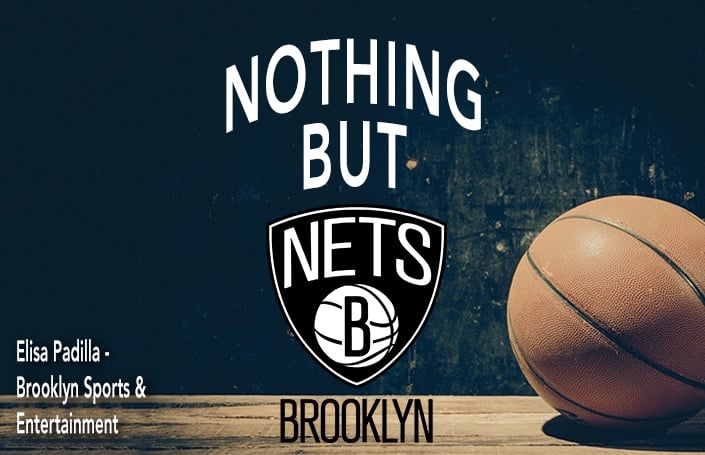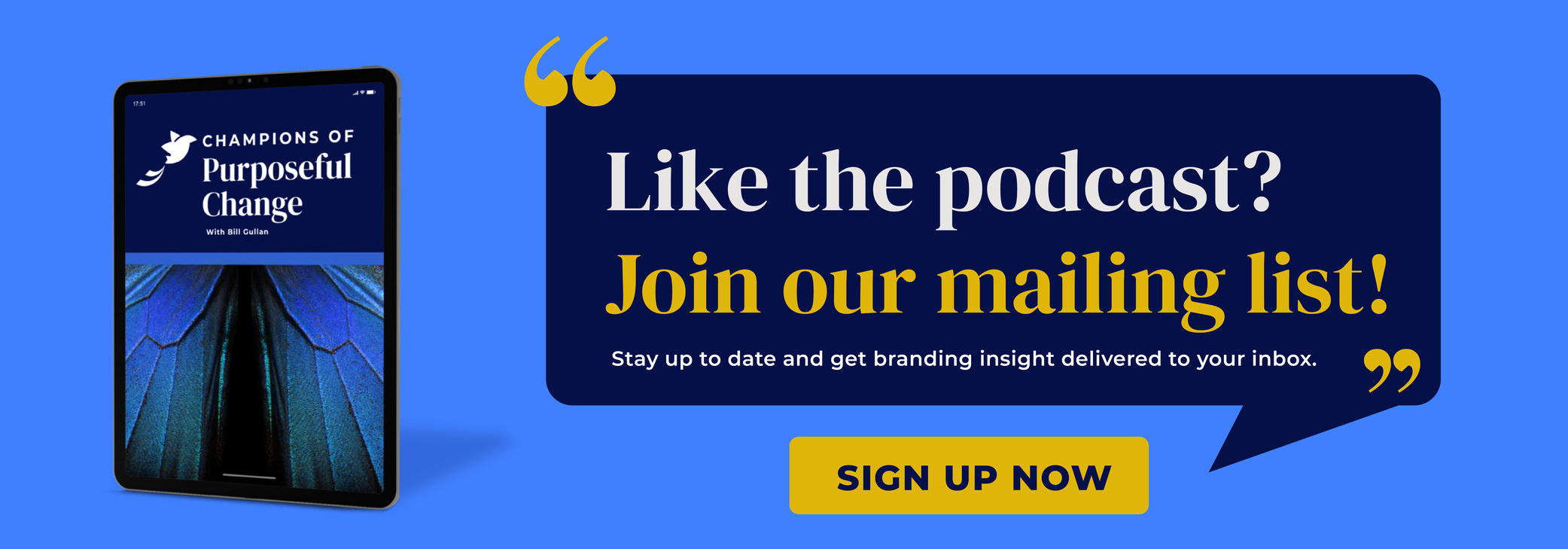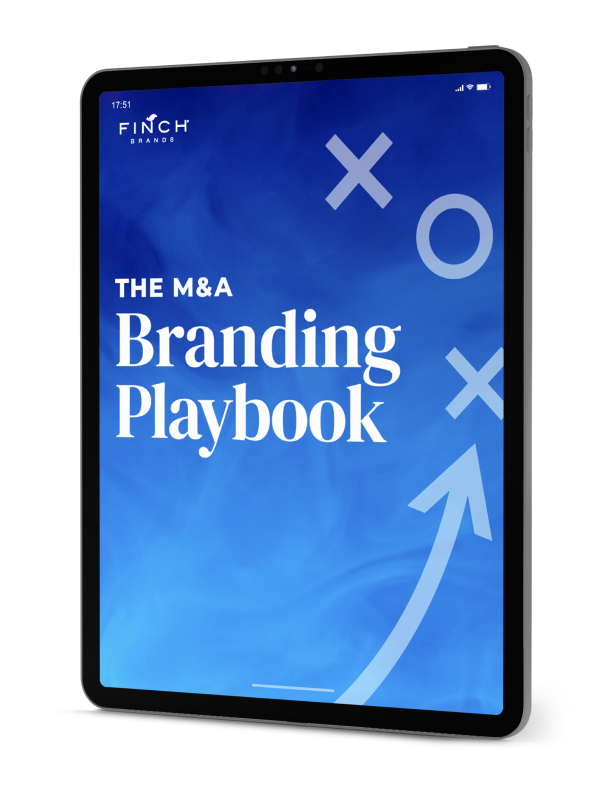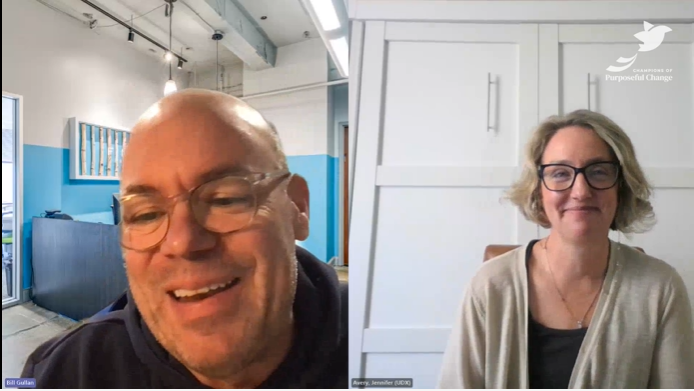Nothing but Nets: Elisa Padilla, SVP and CMO of Brooklyn Sports and Entertainment

In this episode, we host Elisa Padilla, CMO of Brooklyn Sports and Entertainment. An accomplished media professional and sports marketer, she walks us through the intricacies of the Brooklyn Nets’ rebranding process as the team moved from New Jersey. If you like our podcast, please subscribe and leave us a rating!
Podcast: Download Subscribe: iTunes | RSSTranscription
Elisa Padilla: We are selling an experience and we’re selling a moment, because for us, it’s all about creating memories.
Bill Gullan: Greetings one and all. This is Real-World Branding. I’m Bill Gullan, President of Finch Brands, a premiere boutique branding agency. Thank you for joining us. Today is a pleasure for a couple different reasons. One, to be able to talk to somebody whose enthusiasm for what she calls her dream job, that she’s achieved, is palpable through the microphone, through Skype, across distances, and also the substance of what Elisa Padilla is going to talk to us about is of great interest and value to brand and business builders.
Elisa is the chief marketing officer for Brooklyn Sports and Entertainment, which is the umbrella organization that managers the Brooklyn Nets, as well as the wonderful Barclays Center where they play and where a heck of a lot of fun things happen.
Elisa’s career has been a series of fascinating posts, starting with the Knicks, New York Knicks in the 90s, continuing the sports marketing experience, taking that to Disney, spending some time with the mother ship at the NBA, and then moving in a different direction towards media with Nickelodeon with HBO, doing more product base corporate work with AT&T through ’08 and 2010, where she landed then, as director of marketing for the New Jersey Nets. Then I think significantly at least in recent years, managed the re-branding as the Nets came to Brooklyn.
That brand was built, that franchise was created. The fan base was recruited, acquired, captivated, and hopefully maintained. Elisa, in her own characteristically, high energy, congenial, and insightful way, will take us through what has been an incredible career with great lessons for all. Enjoy Elisa Padilla.
We are so excited to welcome Elisa Padilla, the CMO of Brooklyn Sports and Entertainment, to our humble little Real-World Branding podcast. Thank you so much for your time.
Elisa: Thank you so much for having me. I’m happy to be part of the conversation with you today.
Bill: It is absolutely our pleasure. If you wouldn’t mind, your background has been really, really interesting across the various roles and types of organizations that you’ve worked with, and grown up in, and led. Could you give us a little, just a sense of the journey and how it’s been for you?
Elisa: Sure, absolutely. First of all, I can say that I am so grateful for all the opportunities that I have had throughout my career. I have been in sports and entertainment for 20 plus years. I started off as a marketing assistant, working for the New York Knicks.
I was fortunate enough to work for and with someone who really inspired me. My career goal was to become director of marketing for a professional NBA team. The person that I worked with there, taught me everything about the fundamentals of marketing, and marketing a team, in a big market like New York.
I left the New York Knicks and took a job at Disney because at that time, Disney was about to open up the Wide World of Sports Complex. I wanted to diversify my career. I didn’t want to be pigeonholed in basketball.
Ironically, I remember my last day at the Knicks was April 17th. I was starting with Disney on April 19th, and it was surreal. I moved to Florida and I was working on the Tennis business, and 6 months into the job, Disney decided that they were going to eliminate the sports marketing group because there is already a much wider marketing group that they wanted sports to roll into.
I was in Orlando, Florida for a very short time, then came back to New Jersey. I went to work for the NBA, where I spent 5 great years. At that point through my NBA tenure, I decided to go back to school for a graduate degree in marketing. My thought at that point was, you know what, I want to get an advanced degree. I really want to understand all the functions within the organization, how they all work together, because I thought that that would make me a better marketer.
I made a conscious decision when I started business school, that I really wanted to be a diversified marketer. I left the NBA and went to work for a media company, actually 2 media companies, to really understand the landscape of the media world. I worked for Nickelodeon and I also then worked for HBO.
Spent an enormous run at HBO, really learned the business of boxing, pay-per-view, which was great. Then I decided, you know what, I need a little bit of a change. I am going to go learn about technology. I went to work for AT&T, where I handled all their Hispanic segment marketing.
I was there for 2 1/2 years when I got the call about this position in Brooklyn. When I interviewed for the position, I thought, oh, you know what, I’m probably never going to get this job. The fact that 15 years, I guess, or 16 years into my journey, I got a call about my dream job, I feel very, very fortunate. I’ve been with Brooklyn Sports and Entertainment for the past 5 1/2 years, and I’ve been in my current role for 2 years.
Bill: That’s great. Dreams come true, and you deserve it. A couple of questions about what is a really interesting bio. Are you a New Yorker originally?
Elisa: No. I was born and raised in Newark, New Jersey.
Bill: Excellent. When you went down to Orlando, that was a meaningful change. Happiest place on earth perhaps, but not for very long, I guess, given what Disney was doing.
Elisa: No.
Bill: Across the bio, you’ve worked with media brands, as noted, both of which, by the way, are very popular in my house. The technology and what we used to call telecom experience at AT&T, and also extensively, you’re both before and since, in the live event and sports marketing side of the world. Any differences in how you approach the fixed product marketing experience where you have features and benefits versus what you’re doing today, which is deeply experiential?
Elisa: No. I think that inherently, I approach everything through the 4 Ps. I think through the product whether they were selling a cell phone or were selling a basketball game, which is a live experience. Then think through the pricing, the placement, and then the promotion. I think that the core values stay the same.
It’s interesting because I joke with my internal team here and said, ‘it doesn’t matter whether we’re selling water or the second worst team in the NBA, the approach should be the same.’ I’ll make a comment just in terms of extending beyond the 4 Ps, is we really, really take the strategic approach of being where our consumers or potential consumers live, work, and play.
Bill: Sure, sure. Makes sense. When you came back and earned this opportunity, it was the New Jersey Nets, yes, at the time?
Elisa: Yes.
Bill: Although with the move on the horizon, were they still at Brendan Byrne, or had they moved at least a little closer up to Manhattan up to Newark?
Elisa: No. You know what, when I joined the team, the team was playing at the Prudential Center.
Bill: Yep, sure, okay. You’d gone halfway into the city.
Elisa: Yes, halfway.
Bill: Early, one of the things that obviously has had a tremendous impact on the industry, was something we at Finch respected so much and was a process you led, which was re-branding the Nets as they transitioned into Brooklyn – as well as obviously, the opening of the Barclays Center, which is an amazing facility. Can you tell us a little bit about that process and that project from the inside of what obviously was a tremendous and successful endeavor?
Elisa: Of course. The first thing that I will say is that, for all of us who worked on this project, it’s really a once in a lifetime opportunity – to re-brand and transform a team, and to open up an arena. It was a labor of love.
From the Nets perspective, we spent countless hours in countless meetings, talking about the strategy and the brand voice, and what it meant to the team. We knew that the New Jersey fans were not going to follow the team, due to the geographic location. We took the approach of, ‘you know what, this is really a huge opportunity for us, to really develop a new fan base.’
What I will say is we did research to understand Brooklyn, the community, the people who live here in Brooklyn. Also to really understand what it meant for residents of Brooklyn to have another sports team, because there had been a void for 43 years since the Dodgers had left, so it was really, really exciting.
When I joined the team, the logo had already been designed, and we were in the midst of the uniform design, so we were working very closely with the NBA and with our partner Adidas in developing the uniform, and what that meant. When you looked at the uniform colors, black and white, very much inspired by then part owner of the team, Jay Z, because he and his team created the logo.
We were like, ‘Okay, you know what, this is a timeless brand. This is classic, and this is for us. This is going to be everlasting.’ As we went through that process, we talked about the band voice. One of the things that we made a decision early on, was that we wanted the brand voice to come from within the burrow.
We know that residents of Brooklyn are very prideful, they have an attitude. They are very respectful, and they are scrappy. We didn’t want to come in as the big bad NBA, where it was speaking to them. We wanted our voice to come from within the burrow. That’s how our branding campaign of Hello Brooklyn came to life. Again, very humble approach.
What’s the first thing that you say to someone when you meet them, you say hello. For us, we really wanted the residents of Brooklyn, to really embrace this team as their own. We accomplished that, I think. To add a little twist of the story, when we launched on April 30th of 2012, we only had 4 players on our roster. The only thing that we had to on goal was our log, and it was very successful for us.
We launched the Nets brand in April, and September 28th we opened up the state-of-the-art venue, unbelievable arena. Jay Z opened up with 8 sold out nights, and it’s just been incredible. My role in that, is just strictly from a branding perspective. I was able to touch and feel every design element in terms of bringing the brand to life.
When you come into the arena, what the staff is wearing, I had an influence on that. The imagery that you see in the arena, I had an influence on that. From the marketing perspective and thinking about the consumer journey, it’s been an unbelievable experience.
Bill: Right, no question. What a thing to live through and certainly to lead. To that end, you mentioned what is likely the inescapable reality, the sort of New Jersey Nets, Bernard King fan base wasn’t likely to follow for other reasons of simple geography, which make sense, as well as perhaps some sense of loss. What you were moving into was, yes a very prideful burrow that obviously has very distinctive qualities compared for example, to Manhattan or the other burrows. At the same time, you know the Knicks, you know well having created that bond in part, have had a really strong hold on the whole city for quite a while. When you thought about targeting, how did you process some of these dynamics as you and the team thought about laying claim to a distinctive home in Brooklyn?
Elisa: I think that the first thing is that the NBA helps us with that because we have a marketing territory 75 miles from our arena. From the beginning, our mindset wasn’t to come into Brooklyn and convert Knicks fans. That wasn’t on our radar. We had been very respectful, when you look at us on the map and you look at the 75-mile radius. We have been very respectful.
We will not do any marketing above 14th Street in Manhattan. We want to be respectful of our neighbors. At the end of the day, there are 2.6 million people in Brooklyn. I think that there’s enough this year that we can fill up a 17,000 plus arena.
For us, we want to be very authentic. We are the new kids on the block. In no shape or form, do we walk around with rose colored glasses, thinking that we want to compete with a legacy brand like the Knicks – and on the Barclays Center, like Madison Square Garden. That’s not our approach. We want to develop a really authentic relationship, if you will, with our fans and with our guests at Barclays Center.
Bill: Right, right. No, it makes sense, and as you said, there’s certainly enough basketball fans to go around in the area that you all inhabit. If you look at other franchises in other sports, I am not sure how important this was to what you were thinking. Likely in the absence of the Colts when the Ravens came into existence in Baltimore, there had been folks who embraced the Washington team. Having something that’s home and that represents you authentically is a reason to rally around.
You mentioned earlier the fact that there is a marketer’s toolkit that is practiced independent of how the team may be doing, up or down in the standings. There are definitely similarities that you do 24/7 365 as a marketer, but even in the short tenure of this franchise, there have been significant ups and downs in terms of the standings, players coming and going, big name, free agents joining, and then folks leaving in favor of something a bit more youthful. While the fundamentals still remain the same, is there anything that causes the mindset to shift based upon what the upcoming season might look like or anything like that?
Elisa: I think that when you’re in the sports industry, I think this is the way that we look at it, we are selling an experience, and we’re selling a moment. For us, it’s all about creating memories. When we think about last season, look, at the end of the day, yes, we were marketing the team and we didn’t have the best performance on the court, but we were able to rally around our brand new arena. You know what, we’re still the newest arena and we will be until Sacramento opens up their arena next year. When we think about our home where we play, we’re a very tech savvy building, and we think about the customer experience, first and foremost.
We have been an unbelievable culinary program, where we know that attending any event, sporting event, we know that food and eating is part of that experience. Our Brooklyn taste program where we feature over 55 Brooklyn vendors in the arena, is a sexy proposition, if you will. For us, what was in the forefront of our mind, is, ‘Okay, you know what, yeah, you’re going to come to the basketball game, the team may not win, but look at all these other things that are going to be part of your experience.’
I think that when you think about folks that think about driving ticket sales, every single day and from a brand perspective and a brand positioning, being honest about the facts and not trying to hide behind what wins or losses. I think that fans see that.
What I’m really, really excited about for next season, is that our new general manager and coach, had put together a team that, you know what, they’re going to work hard and play hard, and I know that fans rally around athletes that give their best. They may not win every single game, but I know that the team that they’ve assembled, is really going to play hard. You know what, fans know when players show up and fake it. We’ve lived through that, and I’m excited to say that there is something different on the horizon.
Bill: Sure, as long as the future is in mind, and it’s an exciting time to be part of something that’s going to grow into something bigger. We were at Finch working with your old colleague Scott O’Neil on the Sixers campaign a couple of years ago.
I’ll never forget, we came into our first meeting, and there was a sense that the franchise had overdone nostalgia, so we weren’t going to do that. There was also a sense that the cast of characters were likely to change considerably from the beginning of the year to the end, in terms of on-court folks. We certainly didn’t have superstars to anchor the work tours.
I think we did a little bit of what you’re talking about, which is looked at the fundamental premises on which these connections with fans are based, that don’t have to do with whether you’re the 1 seed, the 8 seed, or missing the playoffs, but that are more eternal and has to do with connecting with the character of the market, and what’s authentic about Brooklyn or about Philadelphia, as well as all these other things that you have made part of the experience within an incredible arena.
To that end, your portfolio includes not only obviously the Nets franchise, but the Barclays Center in general, that has a ton of other events. I’m a Davidson Grad so I know the Atlantic 10 tournament was there for a couple years, and WWE comes through, lots of concerts, lots of different things. Is there a different hat that you wear when you think about building the Barclays Center brand alongside the franchise themselves? How do you think or parse out those roles a little bit within your work and your team?
Elisa: First of all, I’m fully transparent working on multiple brands. It’s like changing the channel, because if you think about basketball fans, they’re very different then Barbara Streisand fans, and they are very different than Mark Anthony fans.
When I think about Barclays Center and I think about all the events that we bring through, whether it’s professional boxing, whether it’s a concert, whether it’s a family show, whether it’s college hoops, or whether it’s college hockey, it’s really about understanding who the target audience is. Really putting our message out there in a relevant way that’s going to evoke the right emotion.
’What’s the consumer experience? How is the consumer going to experience our brand to drive and get them excited?’
One of the things that my team and I talk a lot about is, ‘Okay, what is our story? How are we telling it? How are we evoking the right emotion to try the action?’ I often challenge my team when they’re thinking through, ‘Oh, we’re going to do this, we’re going to do this.’ I’m like, ‘Okay, well, what’s the consumer experience?’ How is the consumer going to experience our brand to drive and get them excited about wanting to spend, whether it’s $75 or $150 on a ticket to an event?
I think one of the principles, the foundation is the same, meaning tying it back to the 4 Ps. I think as we think, or at least as I think, of all these other brands, it’s really drilling down to the specific target and who we’re trying to reach, and making sure that we’re reaching them again, in an authentic and relevant manner.
Bill: Shifting into the inside stuff here. You mentioned a bit some of the inside jokes that you and your team have, and obviously all of the effort that’s gone into being part of the leader of a team that’s accomplished what you have. What are key approaches for you as a builder of teams, a driver of culture internally, some of the things that you think are ingredients in creating a winning team off the court?”
Elisa: I think it’s really, really important to understand that when you are in a position like mine, that your position isn’t about you. What I mean by that, is that I’m not here as the chief marketing officer of Brooklyn Sports and Entertainment, to enhance the Elisa Padilla brand. I am there to make my boss look good and to set up my team, and set them up for success.
I think that’s the first thing just in terms of mindset, and then the second thing is, I have an open-door policy. For me, it doesn’t matter whether you’re the intern, whether you’re one of my VPs, whether you’re one of my directors, if you have a question or you have an idea, and you want to be a contributor, and you want to make a contribution, I welcome that.
The third thing that I will say is that I’m completely transparent. I’m probably too transparent with my team, but I think that it’s very, very important that as a leader, I have to tell them the facts and they need to know the information. They need to understand, and it’s my job to explain to them, what their piece is of the puzzle if we’re going to build the entire puzzle.
Bill: When you think about building that team, particularly where you are now, I would imagine that there are a lot of folks who maybe come to your door with a ton of product knowledge and passion. They love the game, they love live events. They love whatever it is, but then there’s obviously functional expertise that needs to be part of this as well as nurtured, if someone is a digital marketer or somebody does X, Y, or Z.
How do you balance, or maybe a better way to say is, what do you look for in terms of the mix between really deep passion for the product versus the functional expertise to check all the boxes associated with the job description?
Elisa: What’s actually very interesting, to me it’s more important to make sure that the people, that our online team, that they are passionate about the function first. For example, it’s much more important for a graphic designer on my creative team, to be passionate about graphic design and telling a story through visuals, than it is for me to have a graphic designer who is a basketball junkie.
Then what happens is that those types of folks, yes, it’s great that you’re passionate about basketball, but you know what, you’re going to be focusing more on basketball, and the stats, and the rankings, than you are about the function that you’re going to be doing.
That’s really, really important. Also, what’s important to me, is that the folks that I had brought on to my team and the potential folks that I interviewed, just in terms of potentially working here, is that they have to be flexible, and they have to like being part of a team.
Whether you work in merchandise or whether you work in creative, or whether you work in traditional marketing, or you work in digital, the reality of it is that you need to work with other people to get the job done, and the folks that aren’t team oriented, those people haven’t lasted very long on my team.
Bill: Particularly about the nature of the NBA today – I was amazed just thinking about it. I was talking about it over breakfast with somebody. I don’t know when this happened, but all of sudden, it is year-round, there is no off season. It was amazing how quickly it seemed, and of course, we in Philadelphia are very focused on the draft these days. That’s what keeps our fires burning.
It seems like right after the finals, during the playoffs, the lottery selection, the lottery is there, and then the playoffs play themselves out. The finals happen, then the draft is right away. Then you’re in the summer league, and then you’re in free agency. All this different stuff. Areas of newsworthy qualities for the franchise, and opportunities based upon what happens to connect with folks around sponsorship and season tickets, and mergers, and all these other things. This is truly 12-month job, all day every day, isn’t it?
Elisa: Yes, it is, it is. It’s really all year-round, all year-round, that’s for sure.
Bill: Was it like that when you were back with the Knicks? You had a great period there in terms of you and stars and some great teams, Mark Jackson, that they had in New York. How was the NBA different with a 15 year or so gap, between your first exposure since you’ve come back in this leadership role?
Elisa: It’s very interesting. What hasn’t changed is that I get to touch everything. As an assistant, I got to touch everything, and now as a CMO, I get to touch everything. What has changed is, I remember being an assistant, and I remember back then during those Florida days, we would go deep into the playoffs, but we really were able to catch our breath for the month of July, part of August.
I remember, I was actually thinking about this the other day because we were anticipating when the schedule would come out. I just remember being an assistant and thinking about, okay, you know what, I have to help coordinate what we’re going to give to our fans who are going to be lining up at the box office to buy their tickets.
I remember that that time was always usually about mid-August. It’s now mid-July, and we’re talking about the potential schedule release. I think that that’s the big difference. When I even speak to my counterparts at other teams, it’s the same feeling, is that we don’t have any downtime. It’s to your point earlier, that it’s the NBA. As the NBA is growing the brand to really be global, it’s an all year-round experience.
Bill: No question. Obviously, back then, and I remember that time in my career, the digital channel didn’t exist. There’s a heck of a lot more ways to create those cohesive touch-points and keep people engaged.
As we depart, thank you so much for your time and insight, and everything else. It’s been wonderful. I think a segment of our listener base tends to be starting out or starting over, and thinking about their own career path. For those who’ve been inspired by all that you’ve accomplished, Elisa, any words of wisdom or words to live by that are important to you, as you’ve thought about your own career and that maybe can help some folks look at things the right way as they think about theirs?
Elisa: Absolutely. I think that when I look at my journey, and I think about my success, the first thing that I’ll say is, no matter how high in the rankings you get, meaning in terms of the executive position, C level, is to remain humble. I think that’s very important, because I often tell my team, ‘What goes up is going to come back down, so keep that forefront.’
The second thing is to really identify your ultimate goal, whether you want to be a reporter, or you want to be a TV analyst, or whether you want to be a CMO somewhere, find someone who is in the role that you aspire to be, understand what they have done to get to that role, have that be part of your road map, and work really hard. Work really hard.
I remember when I started with the Nets 5 1/2 years ago, my number one goal was to put my head down and just to work, and to deliver the best possible work. I am proof that if you work hard, dreams do come true, as we opened up the podcast.
Bill: No, there’s no doubt about that. A lot of dreams have for you. You speak about people that you can connect with who are on that path or further down the path, that one may envision or imagine for oneself. I have found, at least in my own career, that those folks tend to be very generous with their time.
As long as they run across, as you say, somebody who is willing to work and willing to do whatever it takes, I think the mentorship and paying it forward is something that so many executives that we interview, and those our own lives, is something that we view as part of our responsibility to the next generation and everything else.
Elisa: Absolutely.
Bill: Elisa Padilla, award winner, leader, visionary, all these things that are true of you. We’re so grateful for your time and insight. Thank you so much for being with us.
Elisa: Thank you.
Bill: Thank you to Elisa Padilla for her time and her insight. What a really nice person, in addition to all that she’s accomplished. It almost makes us route for not only her to be happy, but the franchise that she represents, and I have to check myself, realizing that as a Sixers fan, the Nets can be successful, most nights, but hopefully when our squads meet up, that the Sixers win out. Maybe a few years till that happens.
In any case, 3 ways to help us here at Real-World Branding, as always, give us a rating if we deserve it, in the app store of your choice, subscribe through the app of your choice. Make sure you never miss an episode of what we do here.
Then let’s keep the dialog going. Find us on Twitter: @BillGullan or @FinchBrands, and please share your feedback, as well as ideas that you have for future guest and topics.
We’re really enjoying the rhythm here at Real-World Branding, and putting together this podcast is a ton of fun for us. Not only to try to master and always get better to audio/visual. I guess not much visual, but the audio and the production part of this, but also using this as an opportunity to reconnect with clients who you maybe haven’t spoken to in a while. Those who we are speaking to, to give them a chance to tell their stories.
We learn something I think, every time we do this. Not only about the production, but about the people that we’re talking to and their own career development, and what they think about, and how they approach the task of building businesses and brands. Signing off from the Cradle of Liberty. Great day all.







